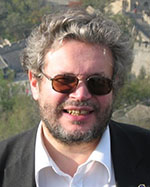智能系统实施技术的工程教育趋势和未来方向
日期:2022/03/31 - 2022/03/31
学术讲座:智能系统实施技术的工程教育趋势和未来方向
主讲人:Prof. Hannu Tenhunen
时间:2022年3月31日(周四)下午4:00-5:00
地点:via Zoom
讲座摘要
The rapid progress in technologies coupled with the need for highly skilled engineers has brought new challenges in ICT education system, especially in area of SoC systems in China context. Traditionally, the education system is teacher-centric. However, this outdated approach has been proven inefficient in creating a knowledge-based society. In recent years, many universities have adopted the active-learning approach in which students gain critical thinking and transversal skills needed to close the gap between skills acquired in schools (program learning outcomes) and skills needed in the workplace. The engineering education should be redesigned to address the societal problems and to foster innovation through the quadruple or triple helix model. Challenge driven education (CDE) is a graduate course programme at Master and PhD that aims to solve societal problems using the triple helix model. CDE has been successfully implemented to address the societal needs in Europe, Africa, and China by us. CDE has many inspirations from CDIO approach and from problem based learning methods.
From electronic system integration perspective, new challenges have emerged in terms of technology access or utilizing state-of-the-art monolithic technologies due to various economic, political, or technology reasons. Thus, a new approach need to be initiated with focus on re-inventing SoC design from outside in. The key aspect will be the significantly enhanced role of interconnects (meaning metal wire) as system component. In this presentation I will discuss some basic aspects of the interconnect centric design and its impact to system architectures and the future integration technologies for building competitive solutions with less advanced monolithic CMOS technologies. This will one of the key aspects for Chinese system integration and securing technology access in current changing global environment.
主讲人简介
 Hannu Tenhunen received the Diploma Engineer degree in electrical engineering and computer sciences from Helsinki University of Technology, Helsinki, Finland, in 1982 and PhD degree in microelectronics from Cornell University, Ithaca, NY, in 1986. During 1978–1982, he was with Electron Physics Laboratory, Helsinki University of Technology. From 1983 to 1985, he was with Cornell University as a Fulbright Scholar. From September 1985, he was with the Signal Processing Laboratory, Tampere University of Technology, Finland, as an Associate Professor and head of department. He was also a Coordinator of the National Microelectronics Program of Finland during 1987–1991. Since January 1992, he has been with Royal Institute of Technology (KTH), Sweden, where he is a Chair Professor in the electronic system design. At KTH he was the dean of School of Information Technology 2002-2005. For period 2006-2011 he was director of Turku Centre of Computer Science (TUCS), Finland. He has been a part time invited professor at University of Turku. He has an honorary doctorate and honorary professor degrees and has received a Magnolia Silver Award and Metal from the city of Shanghai for his contributions there. His current research interests are VLSI circuits and systems for autonomic and smart systems and IoT. He has been actively involved in several EU programs on VLSI/ system-on-a-chip. He was, at European level, the education director of the European Institute of Innovation and Technology, EIT Digital, 2006-2011. He has published over 950 reviewed publications and holds 9 international patents. His google scholar number of citations is 15116 and h-index is 53.
Hannu Tenhunen received the Diploma Engineer degree in electrical engineering and computer sciences from Helsinki University of Technology, Helsinki, Finland, in 1982 and PhD degree in microelectronics from Cornell University, Ithaca, NY, in 1986. During 1978–1982, he was with Electron Physics Laboratory, Helsinki University of Technology. From 1983 to 1985, he was with Cornell University as a Fulbright Scholar. From September 1985, he was with the Signal Processing Laboratory, Tampere University of Technology, Finland, as an Associate Professor and head of department. He was also a Coordinator of the National Microelectronics Program of Finland during 1987–1991. Since January 1992, he has been with Royal Institute of Technology (KTH), Sweden, where he is a Chair Professor in the electronic system design. At KTH he was the dean of School of Information Technology 2002-2005. For period 2006-2011 he was director of Turku Centre of Computer Science (TUCS), Finland. He has been a part time invited professor at University of Turku. He has an honorary doctorate and honorary professor degrees and has received a Magnolia Silver Award and Metal from the city of Shanghai for his contributions there. His current research interests are VLSI circuits and systems for autonomic and smart systems and IoT. He has been actively involved in several EU programs on VLSI/ system-on-a-chip. He was, at European level, the education director of the European Institute of Innovation and Technology, EIT Digital, 2006-2011. He has published over 950 reviewed publications and holds 9 international patents. His google scholar number of citations is 15116 and h-index is 53.
